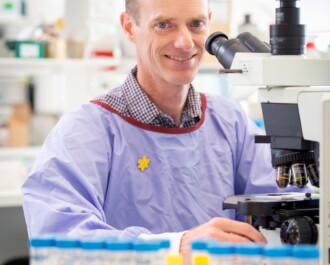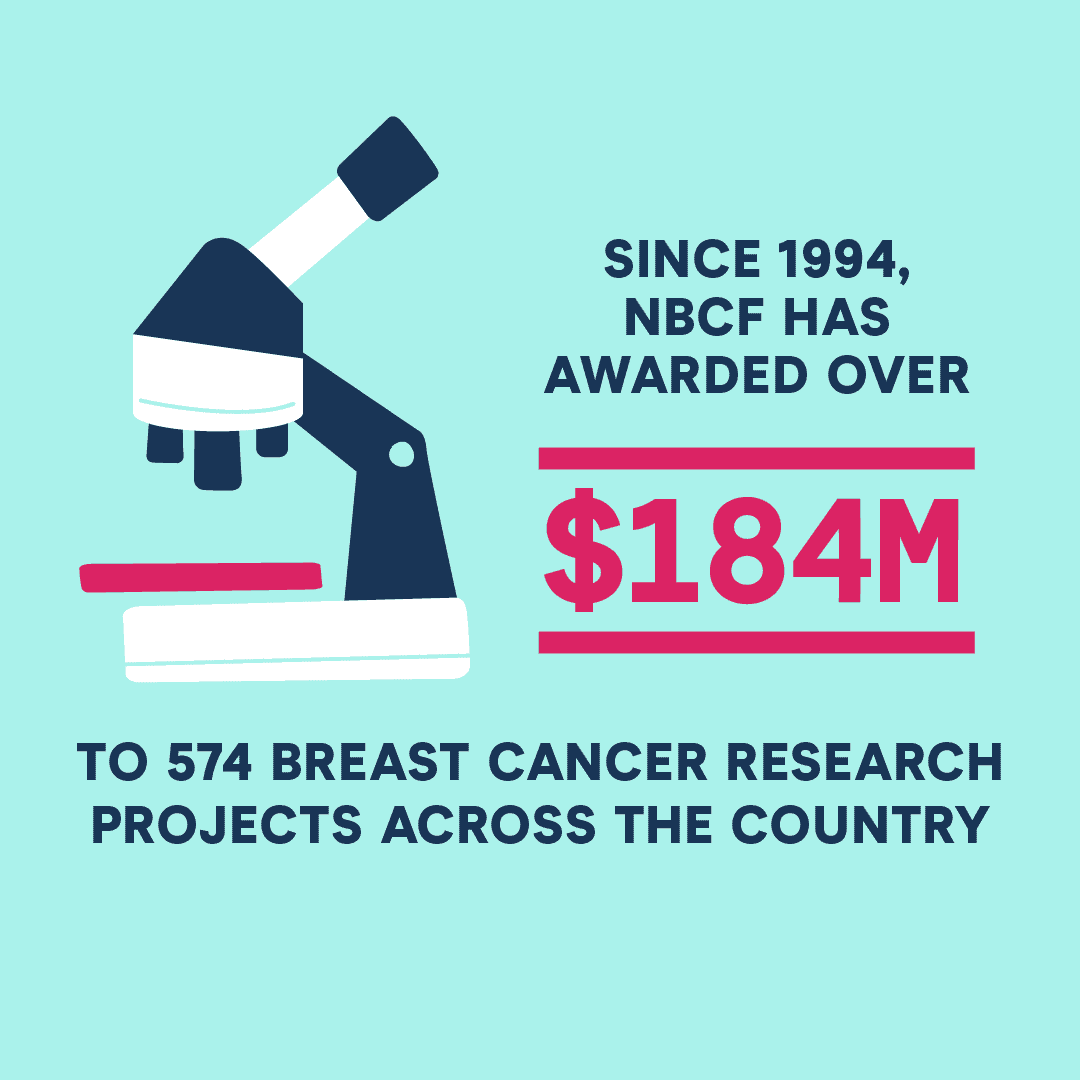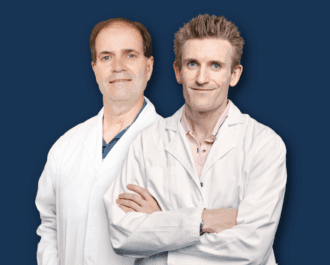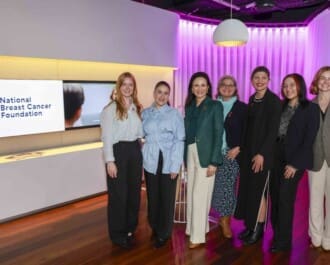
The National Breast Cancer Foundation (NBCF) today awarded 13 game-changing research projects worth $4.3M to support its ambitious goal of Zero Deaths from breast cancer. The 13 research projects, which include predicting breast cancer spread and risk, targeted therapies for recurring breast cancer and accelerating access to personalised medicine, have the potential to radically improve breast cancer screening and treatment, and ultimately reduce the 3,000 deaths each year in Australia from the disease.
Breast cancer is the most commonly diagnosed cancer in Australia and worldwide with diagnosis rates almost doubling since 1994. This year alone, it is estimated that over 20,000 Australians will be diagnosed and, each day, eight women die from the disease.
Professor Sarah Hosking, CEO of NBCF said, “This past year has highlighted the value and impact of cohesive scientific and medical research in achieving better health outcomes. Over the last 27 years NBCF has made a significant improvement to Australia’s breast cancer outcomes through its grants program and I’m proud to present 13 additional talented researchers with the support they need to work towards NBCF’s aim of Zero Deaths from breast cancer.”
“To our supporters, we thank you for your continued contributions which make a tangible impact in breast cancer research. This year, many of the innovative projects being funded are looking at how improvements in prevention, detection, and treatment can bring us closer to meeting our ambitious goal and I’m excited to see the results these projects will bring.”
NBCF has made incredible achievements in Australian breast cancer research since its inception in 1994. Since then, it has invested $184 million into 574 game-changing research projects, contributing towards increasing the five-year survival rate for breast cancer from 76 per cent to 91 per cent. This equates to nearly 47,000 lives saved thanks to funding from the generous Australian community and shows that cutting-edge research is the key to stopping deaths from breast cancer.

For NBCF to play its part in achieving Zero Deaths from breast cancer, an additional investment of at least $100 million over the next nine years is required. By identifying, funding, and championing world-class research, NBCF will continue to work towards this goal and shift the statistics.
Some of the projects funded this year include:
- Professor Paul James (Peter MacCallum Cancer Centre) – Identifying women at risk of developing breast cancer using a new blood test – The study is developing a blood test to detect specific abnormalities and risk markers that accumulate in our bodies over the course of a lifetime and can indicate an increased risk of developing breast cancer, before the cancer is present. This test could be added to current approaches to measuring a woman’s personal risk and would ultimately transform breast cancer screening and treatment into a stratified approach, by identifying women who need increased screening and preventative treatment and those who do not. Professor James is supported by Mother’s Day Classic.
- Associate Professor Belinda Parker (Peter MacCallum Cancer Centre and University of Melbourne) – Predicting Breast Cancer Spread Using Novel Biomarkers – A/Prof Parker is researching whether new breast tissue biomarkers can be used to predict which early breast cancers require treatment and those that do not. Ultimately, the findings from this study will help distinguish between those patients who need and will benefit from therapeutic intervention such as radiotherapy from those that can be spared the side effects of treatment.
- Dr David Gallego-Ortega (Garvan Institute of Medical Research and University of New South Wales) – Accelerating Next Generation Personalised Medicine – Dr Gallego-Ortega is investigating personalised medicine, which allows for the selection of the best possible drug for each patient based on specific characteristics of their tumour, but currently requires laboratory-based drug screening to determine which drug (or drugs) is most effective –taking between 3-12 months for results. He has developed a new medical device, the ALTEN, to speed up and improve this process. It enables more sensitive and rapid functional testing and can deliver results in as little as 2 weeks.
More News Articles
View all News


